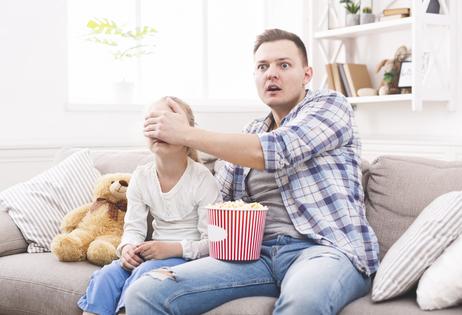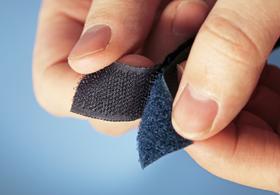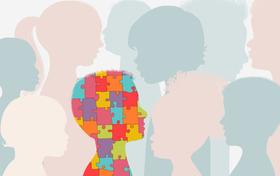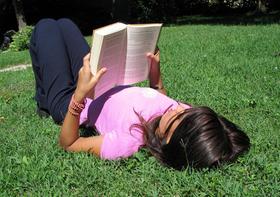I have written about the issue of over-protective parents recently. The subject intrigues me because I have always wondered what drives parents to be that way. Why would any parent want to disempower their child? After all, that's one of the downsides of being over-protective. Unfortunately, I can only speak authoritatively from my own experience raising two daughters and two sons. In this article, I will refer to and quote more knowledgeable people to explain what's involved with raising bubble-wrapped children.
How we raised our children
We were always concerned with our children's safety. Fortunately, the communities where we lived were safe. Back in the 70s and 80s, we didn't have to worry about social media and video games. As a classical musician, I recall being appalled at some of the popular music my children listened to. But they had caring, experienced teachers in the private schools they attended. We provided enrichment activities including horse-riding, music lessons, summer sessions at talented and gifted schools. Looking back at those times, I must confess that I probably would have been a helicopter father, that is, if my dear wife had let me act that way. But she didn't. She never missed a trick. Nothing escaped her when it came to her children. Absolutely nothing. Her secret was to let her kids make mistakes. I remember when our eldest daughter came in 30 minutes after she was supposed to be home. Her mother was waiting patiently and greeted a very guilty-looking daughter with, "Good night, dear, and sleep well. We'll talk in the morning." In the morning, the two of them went out together to run errands. The issue of missing curfew was aired and discussed in a calm, quiet way that was my late wife's trademark. As I mentioned before, she let them make a mistake, then explained why it was a mistake and how to deal with similar situations in the future.
That brings me to this great phrase, "bubble-wrapped children." When I saw that appearing in the media, I decided to find out more about it.
What happens when parents bubble-wrap their children?
In Raising Resilient Kids: Are We Bubble Wrapping Our Children?, Allison Lawlor notes that many parents over-protect their children with negative consequences.
When we bubble-wrap our kids, we are disadvantaging them.
Writing in YOUniverse, Joanna Pantazi lists 8 Negative Effects of Overprotective Parenting.
1. Low Self-Esteem and Self-Worth
2. Prone to Anxiety and Depression
3. Shame and Doubt
4. Approval-seeking and People-pleasing Tendencies
5. Risk-Taking Behaviours
6. Perfectionism
7. Insecure Attachment Style in Relationships
8. Authenticity and Honesty towards Self and Others
Joanna further notes that "Overprotective parenting is definitely done with the purest intentions. When someone has a child, they want to make sure that they are protected from harm in order to grow into capable, resilient, and self-confident adults. Unfortunately, though, quite the opposite effects are created in children of overprotective parents, that follow them well into adulthood. In fact, overprotective parenting does more harm than good."
This video looks at the tough future bubble-wrapped children can face.
What are the long-term effects?
Parents who bubble-wrap their children make it difficult for them to handle difficult situations. You and I know that life deals some tough cards to play. How we deal with situations as adults has its roots in our childhood experiences. If our parents protected us and prevented us from solving our problems, that bubble-wrapping can leave us feeling helpless and lacking confidence.
As Marcia Sirota wisely notes in Why Bubble-Wrapped Kids Grow Up Feeling As Overwhelmed As Abused Kids
It's terrible to grow up being hurt or abused, but it's just as bad for a child when her parents take overdoing the things that the child should be learning how to do for herself, or when the parents protect the child from every possible hurt, loss or disappointment.
Why is a private school education an effective antidote to bubble-wrapping?
My personal experience both as a parent of two children who attended private schools and as a teacher and administrator in private schools proved that the small class sizes allow children to learn to express their thoughts and opinions without fear of ridicule or chastisement. Another important factor is the approach most private schools take. You see, they don't teach only the academics. Private schools aim to develop the whole children. Academics, extracurricular activities, and sports provide many opportunities to empower even the least confident child. This happens under the watchful eyes and guidance of both faculty and staff.
Here's how Ravenscroft School in Raleigh, North Carolina puts it:
A Ravenscroft education has these values at its core. Lead From Here is a one-of-a-kind educational framework that has transformed our school culture and curriculum to imbue our students with these values, to teach them leadership skills, and to equip them to take their place as citizen leaders in a complex, multicultural world.
This video examines the issue of over-parenting.
Some final thoughts
In this era of the COVID pandemic, we parents need to be more conscious than ever of our children's safety. Their welfare has always been our priority. That will not change. However, given all the challenges young people face in our rapidly-changing society and work environments, we must let them develop new responses to problems and dynamic solutions to issues you and I never had to face. The confidence and capability developed as young people because we didn't over-protect them will pay off in their adult lives. Flexibility is the new watchword in careers. Young adults who are not afraid to make mistakes as they try new ways will have the requisite flexibility the 21st-century demands.
Questions? Contact us on Facebook. @privateschoolreview





















